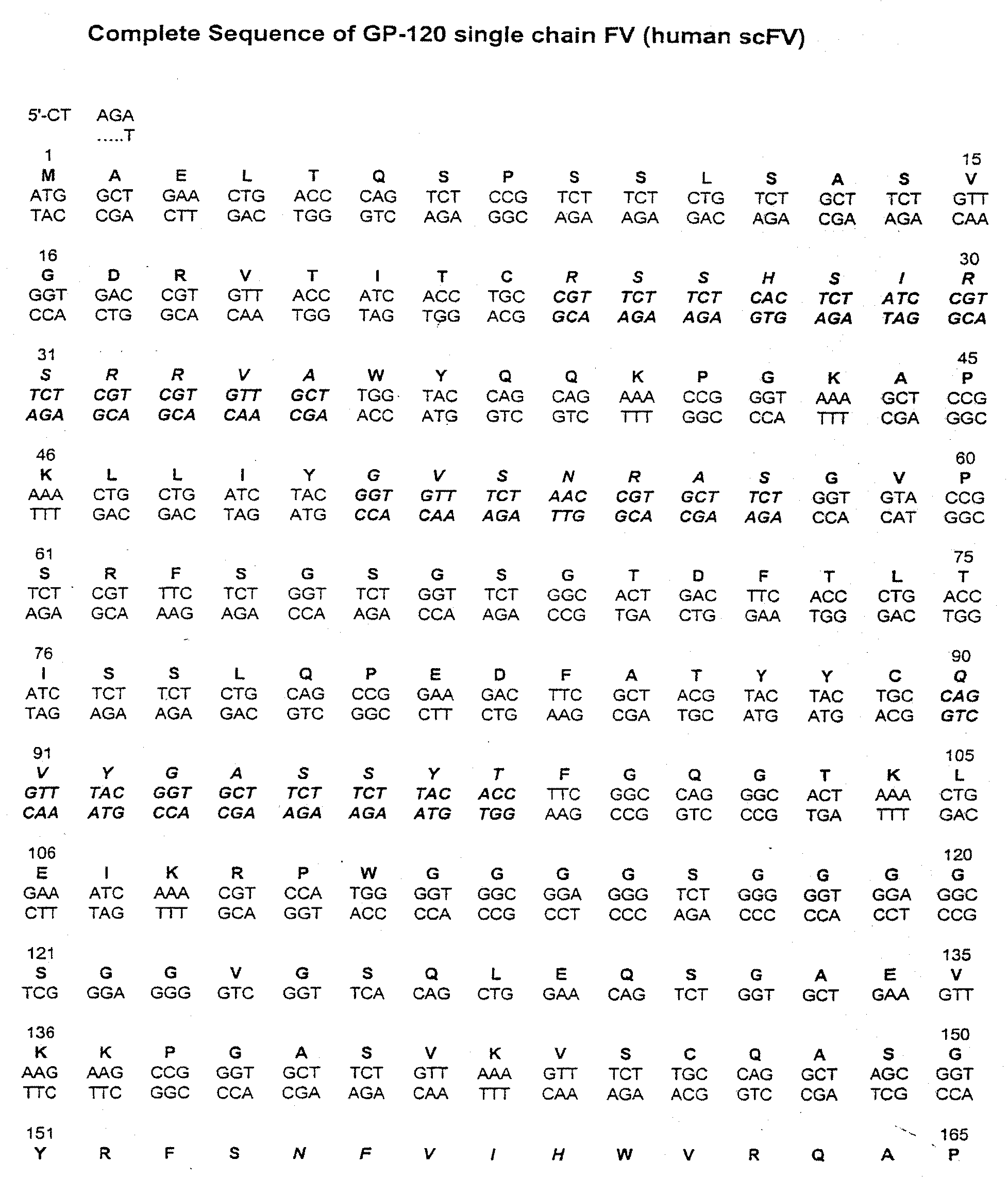Universal Libraries for Immunoglobulins
- Summary
- Abstract
- Description
- Claims
- Application Information
AI Technical Summary
Benefits of technology
Problems solved by technology
Method used
Image
Examples
Embodiment Construction
[0020]The present invention relates to libraries of immunoglobulins of interest, including libraries containing nucleic acids encoding immunoglobulins, and libraries containing immunoglobulins themselves. An “immunoglobulin,” as used herein, is an antibody protein that is generated in response to, and that binds to, a specific antigen. There are five known classes, or types, of immunoglobulins: IgG, IgM, IgA, IgD and IgE (see, e.g., Dictionary of Cell and Molecular Biology, Third Edition). The basic form of an immunoglobulin is the IgG form: it includes two identical heavy chains (H) and two identical light chains (L), held together by disulfide bonds in the shape of a “Y.” Heavy chains comprise four domains, including three constant domains (CH) and a variable region (VH). The light chains have a constant region (CL) and a one variable region (VL).
[0021]Each heavy-chain variable region and each light-chain variable region includes three hypervariable loops, also called complementar...
PUM
 Login to View More
Login to View More Abstract
Description
Claims
Application Information
 Login to View More
Login to View More - R&D
- Intellectual Property
- Life Sciences
- Materials
- Tech Scout
- Unparalleled Data Quality
- Higher Quality Content
- 60% Fewer Hallucinations
Browse by: Latest US Patents, China's latest patents, Technical Efficacy Thesaurus, Application Domain, Technology Topic, Popular Technical Reports.
© 2025 PatSnap. All rights reserved.Legal|Privacy policy|Modern Slavery Act Transparency Statement|Sitemap|About US| Contact US: help@patsnap.com



